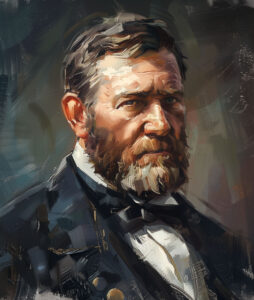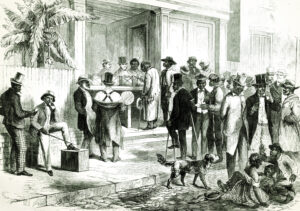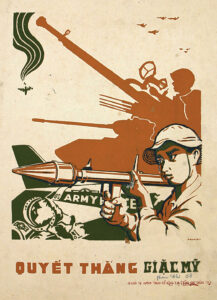In Robin Blackburn’s most recent book, An Unfinished Revolution: Karl Marx and Abraham Lincoln, the British historian and former editor of the New Left Review, combines his interest in both radical movements and the American Civil War. The book includes not only writings by Marx showing his perspective on the epochal conflict but works by American labor activists. Blackburn’s previous books include The Making of New World Slavery and The Overthrow of Colonial Slavery.
Did Marx and Lincoln share a perspective on slavery?
Both rejected it quite strongly. Lincoln talked about the slave’s unrequited labor, and Marx talked about the super-exploitation of the slave. Both men found the racialization at the heart of the slave system repugnant. But it was really both strands—exploited labor and racial disregard.
You note that Lincoln himself experienced forced labor.
Up until the age of 21 he was working without payment for his father. On some occasions his father would hire out his son’s services, and even then didn’t hand over the wages.
Tell us about Marx’s work for the New York Daily Tribune.
Marx himself was only 30 when he was caught up in the 1848 revolution, and he edited one of Germany’s main revolutionary newspapers. At that time, he was visited by Charles Dana, an American journalist and managing editor of the New York Daily Tribune. Dana later hired him as the Tribune’s European correspondent, and Marx wrote about 450 articles, including features about, for example, factory conditions in England. A lot of his research for the Tribune ended up in his famous book Das Capital, published in 1867.
Was Marx well known in America at the time? Would Lincoln have read him?
Lincoln probably read the Tribune, the main newspaper for Republicans. The Tribune did not put Marx’s name on all his articles, as some were published as editorials. At least 300 were published under his name. He had a characteristic writing style, sometimes very sarcastic and sometimes very lyrical.
Marx published analyses of the Civil War for the Viennese paper Die Presse. Where did he gain his insight?
From 1848-49, Germans had gone through their own civil war—the revolution of 1848 that was eventually crushed by the military power of the Prussian king and the other monarchs of the principalities of Germany, which frustrated the unification of Germany—one goal the revolutionaries were trying to achieve. And then many thousands of them sought refuge in the United States. Marx kept in contact with those people and wrote for the German-language U.S. papers too. There was also the German war against Napoleon, with new tactics and strategies, and the great military thinker Carl von Clausewitz.
Explain the influx of Germans to America and their prominence in the Union Army.
Notwithstanding their very radical politics, large numbers of German-Americans who came to the United States volunteered and soon got quite senior posts in the Union Army. There were about 200,0000 German-Americans who fought for the Union, and about 40,000 were in units that had the German language as the medium of command. What may have helped increase the importance of these German-Americans was that Charles Dana, who had been responsible for inviting Marx to write for the Tribune,became assistant secretary of war in 1862. He was in contact with close friends of Marx like Joseph Weydemeyer, who was made first colonel in defense of the forts at St. Louis and was later promoted to the rank of general. Another member of the Communist League in Germany in the 1840s was August Willich, who became a Union general.
Marx seems to have had a deep grasp of military strategy.
In March 1862, he writes that the Anaconda strategy of encircling the Confederacy and trying to squeeze it to death is not going to work. What the Union Army needs to do is cut them in two and that will gravely weaken them. That’s an interpretation of Clausewitz’s doctrine. The remarkable thing is that it looks like he was still corresponding with Dana, and he might well have sent him a copy of the article. Dana was at this time in the camp of General Grant; he had been sent to look at the various generals and send his appreciation of them to Lincoln. Of course Grant helps to bring about the cutting of the Confederacy in two by his victory at Vicksburg.
Do you think Marx influenced Lincoln’s direction of the war?
Not directly, but Lincoln’s decision to issue the Emancipation Proclamation was influenced by knowing it would strengthen the hand of the Union’s supporters in Europe. Worth noting, too, that Marx and Lincoln were both influenced by German philosophy—in Lincoln’s case, as transmitted by such writers as Theodore Parker.
Did Marx and Lincoln ever correspond?
In 1864, following Lincoln’s reelection, Marx was asked to draft an address to him from the International Workingmen’s Association, which included many British trade unions, French trade unions, German socialists and other progressive people. Lincoln’s reply, via his ambassador, acknowledged their support and said that nations don’t exist for themselves alone.
Did the war turn out as Marx predicted?
When the war started, the common liberal and radical reaction was that this is really a struggle in which the South is trying to assert its identity as a separate nation, and the North is denying this principle of self-determination. Marx from the beginning was a strong supporter of the Union and the North and saw slavery as the underlying issue. And he was quite sure that to win the war the Yankees would perhaps reluctantly be driven to emancipate the slaves and even enroll them in the Union Army.
What impact did Marx have on American labor movements after the war?
A lot of American trade unions have the name international in them. I think that’s because many of the IWAs established sections in the U.S. There were about 50, and they helped found early unions. A final point is that Marx was tremendously moved by the revolt of the Paris Commune at the end of the war between Prussia and France, the defeat of the Communard in Paris and the slaughter of about 30,000- 40,000 people. The IWA in New York City organized a big demonstration in 1871. In a drawing of this very large gathering, you can see the Skidmore Guard, a black militia; you can see the marching bands; you can see the women—some of the earliest feminists joined the International—walking in the demonstration. There’s an Irish band and trade unionists and banners and the Cuban flag carried by followers of a leader of the Cuban struggle against Spain. I reproduce it in my book, showing the spectrum of U.S. opinion that organized just for a moment under the International banner in response to these events in Europe. I think Marx learned from America, and America learned a little bit from Marx.
Originally published in the June 2012 issue of Civil War Times. To subscribe, click here.




